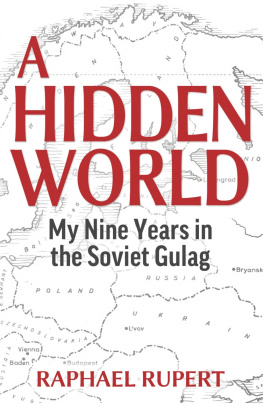ROUTLEDGE LIBRARY EDITIONS:
SOCIAL THEORY
Volume 25
THE FRONTIERS OF SOCIOLOGY
THE FRONTIERS OF SOCIOLOGY
Edited by
T. R. FYVEL
First published 1964
This edition first published in 2015
by Routledge
2 Park Square, Milton Park, Abingdon, Oxon, OX14 4RN
and by Routledge
52 Vanderbilt Avenue, New York, NY 10017
Routledge is an imprint of the Taylor & Francis Group, an informa business
1964 Cohen & West
All rights reserved. No part of this book may be reprinted or reproduced or utilised in any form or by any electronic, mechanical, or other means, now known or hereafter invented, including photocopying and recording, or in any information storage or retrieval system, without permission in writing from the publishers.
Trademark notice: Product or corporate names may be trademarks or registered trademarks, and are used only for identification and explanation without intent to infringe.
British Library Cataloguing in Publication Data
A catalogue record for this book is available from the British Library
ISBN: 978-0-415-72731-0 (Set)
eISBN: 978-1-315-76997-4 (Set)
ISBN: 978-1-138-78308-9 (Volume 25)
Publisher's Note
The publisher has gone to great lengths to ensure the quality of this reprint but points out that some imperfections in the original copies may be apparent.
Disclaimer
The publisher has made every effort to trace copyright holders and would welcome correspondence from those they have been unable to trace.
THE FRONTIERS OF
SOCIOLOGY
edited by
T. R. FYVEL
LONDON
ROUTLEDGE & KEGAN PAUL
First published 1964
by Cohen & West Limited
Published as a paperback 1968
by Routledge & Kegan Paul Limited
Broadway House, 68-74 Carter Lane
London, E.C.4
Printed in Great Britain by photolithography
Unwin Brothers Limited, Woking and London
Cohen & West 1964
No part of this book may be reproduced
in any form without permission from
the publisher, except for the quotation of
brief passages in criticism
SBN 7100 6093 9
CONTENTS
A. H. Halsey
Fellow of Nuffield College, Oxford
J. A. Banks
Senior Lecturer in Social Science, Liverpool University
O. R. McGregor
Professor of Social Institutions, Bedford College, London
Philip Abrams
Fellow of Peterhouse, Cambridge
W. J. H. Sprott
Professor of Psychology, Nottingham University
John Madge
Deputy Director, P.E.P.
THE essays in this volume are based in revised and slightly expanded form on a series of six individual talks broadcast in the BBC Third Programme under the same joint title, The Frontiers of Sociology. It is because I acted as producer to this original series that I write these brief introductory lines. It was the aim of this series of talks to look at the progress of therelatively-new discipline of sociology and to consider how far sociology can throw light on some of the social issues of our time. For example, how complex are the links between current British education and class structure? How should we see the basic role of shop-stewards within the organization of our industrial society? We are all aware of changes in the pattern of family lifehow important are the findings so far gathered on this subject by sociologists? To what extent is current penal practice in line with sociological findings on the subject of crime? What are the lines along which sociologists are investigating contemporary political life and what can we expect from their efforts? And finally, to what extent is sociology itself more than a convenient name for a bundle of social studies and, in fact, a discipline on its own, with its own distinct methods and viewpoints? It was questions of this order which were under discussion during the Third Programme talks series. The aim, it should be stressed, was not so much to provide precise answers about the way our society is going, but to illustrate the specific sociological approach in seeking answers to some of the questions of our time. Similarly, it is as a collection of six individual views on this theme that the essays are now presented in book form.
T. R. FYVEL
London, 1964
I
Education and Mobility
by A. H. Halsey
Fellow of Nuffield College, Oxford
T HE American frontier was sparsely populated by a polyglot collection of determined men, crudely armed, clamorous for territory and addicted to harsh religious doctrine. Life on the British academic frontier of sociology is a bit like that tooa handful of intellectual migrants, quarrelling strenuously over theories, methods and subject matter.
There are no more than one hundred sociologists in our universitiesless than the number of historians in Oxford alone. They are newcomers. The only great English sociologistHerbert Spencernever held a university chair and most of the leading social ideas of the last hundred and fifty years came from men working outside academic institutions, many of them political and social reformerslike Robert Owen, Karl Marx, William Morris, Sidney Webb, or H. G. Wells. Even a generation ago, most of the present sociologists would not have been university teachersand many would not have had a university education. They are largely the products of the special conditions and opportunities created by the War: most are of working-class origin or foreign or in other respects outside the main stream of English academic lifemarginal men, culturally displaced persons.
Yet the frontier is booming: there are urgent rumours of gold. Traditional Britain is today under pressure to modernize her industry and technology, to define her post-imperialist role in the world and above all to accommodate the aspirations of increasing numbers of young people towards higher education, good jobs and a meaningful existence. The new interest in sociology in every kind of study of British societyrepresents, I think, a reflection of this situation; it is an intellectual projection, if you like, of personal, emotional concerns. Paper-backs and the Sunday newspapers have made sociology fashionable and undergraduate enthusiasm has played its part in helping it to reach even Oxford and Cambridge. Within this framework the sociological study of education and of mobility holds a central positionit provides, I think, a key to the understanding of the structure of our society and the directions in which it is changing.
Contemporary research in the sociology of education starts from a number of generalizations. The first is that the social organization of an advanced industrial and scientific culture such as ours is perpetually self-transforming and depends for its maintenance on an elaborate educational system.
I cannot emphasize too much how different is the image of the world entertained by modern sociologists compared with traditional notions. In medieval thought or, for that matter, even today in our moments of weariness or exasperation with the clamour of events, social change is conceived as a disturbance from which we will sooner or later recover to return to a placid and stable equilibrium. Ours is, of course, not the first generation which thought itself living in times of swift change. But I think the new factor is this: the sociological perception of present-day scientific or technological society is of a world in which only change seems normal because a considerable and increasing part of societys capital and its energymaterial and humanis consciously and explicitly organized for the pursuit of innovation.











